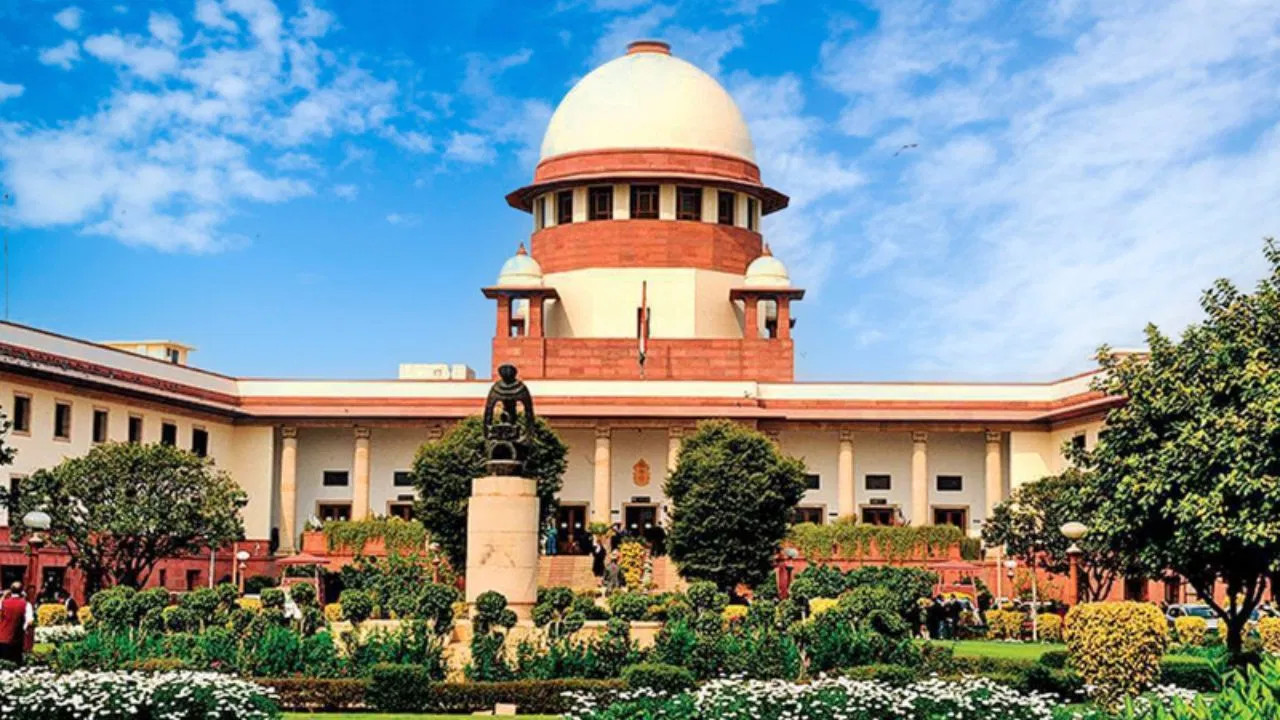
SC Directs EC to Publish List of 6.5 Million Deleted Voters in Bihar (Image Source: Social Media)
The Supreme Court heard the matter of Bihar’s Voter List Revision (SIR) on Thursday. The court told the Election Commission that data of the 6.5 million voters whose names have been deleted has not been made public, and asked why this was so. The Supreme Court directed, 'Make it public.' The Election Commission replied, “Alright, if it’s your order, we will do it.
Justice Kant said, 'We do not want the rights of citizens to depend on political party workers.' The Supreme Court pointed out to the EC that there is already a serious dispute regarding whether names in the draft roll belong to dead or living persons. The court asked the EC, “What mechanism do you have to identify such people so that families know if a member has been marked as deceased in the list?” The court directed the EC to upload the list of deleted names on its website, so people can know the reality. Aadhaar numbers or other recorded documents, EPIC number, and the reason for deletion should also be clearly mentioned.
The Election Commission said it would provide this information on the website for each assembly constituency and would release the deleted voters’ list district-wise. Justice Bagchi said, “We just want this information to be public.” Justice Kant added, “The family of Poonam Devi should know her name was removed because she passed away.” The Supreme Court asked the EC, “By when can you do this?” Justice Bagchi suggested it be done within 48 hours.
The Supreme Court also asked the EC to inform it about the documents considered in the 2003 Bihar voter list revision. The bench of Justice Surya Kant said it wanted the EC to clarify which documents were used in that 2003 exercise. In fact, petitioners’ lawyer Nizam Pasha told the court that if the cut-off date of January 1, 2003 is removed, “everything goes.” EC’s lawyer Rakesh Dwivedi said he wished to appreciate the opposing counsels for their contribution, calling it a good sign for the future.
The court said, “According to you, as of January 1, 2025, there are 78.9 million voters, of which forms for 72.4 million have already been filled, leaving 6.5 million. Out of these, 2.2 million have died. You must have heard that there is serious controversy about whether people are alive or dead. What is your system for letting families know their member has been marked as deceased? Citizens have their rights — some constitutional, some statutory. Can’t you have a system so they don’t have to run after local political parties?”
The EC replied that the number of booths has been increased and the website contains the list of BLOs. For identifying the dead, officials along with volunteers will go door-to-door.
The SC asked, “Why don’t you also do this online?” The EC said the list of excluded persons is on its website — just enter the name and EPIC number to check if the person has filled the enumeration form or not.
The EC’s lawyer stated that if we look at the scope of the arguments, they claim the ECI cannot decide on matters of citizenship. Then comes the right to be registered as a voter, followed by the scope of ECI’s powers under Article 324, and Article 14’s duty to be fair and reasonable. This is the constitutional framework being presented.
Parliament, under Article 327, has the power to make laws regulating elections. Now the question is how these two laws relate — does the process of conducting elections under the 1951 law impact the process of preparing the electoral roll? Do we have the right under Section 21(3) to conduct SIR (Special Intensive Revision)? If we do, is it in line with rules and regulations? Can the ECI amend it to fit the purpose for which SIR was initiated?
Dwivedi said another question is whether we could set 2003 as the cut-off year, and whether it is inclusive or exclusive. He said he would go through each SIR order and the rules and provisions, but first wanted to make some general points and a caution — that his arguments will be based on reason and prudence. “I am not arguing that the ECI is all-powerful to do whatever it wants. I do not hold such an exaggerated view. But the ECI has ample powers under Article 324, Sections 15, 21(2), and 21(3).
Justice Kant said, “But Bihar and other states have a large poor population that is a fact, and rural areas will take time.” Dwivedi said it is harder to track voters in urban areas because they don’t want to be found. “In today’s Bihar, male literacy is 80% and female literacy is close to 65%. Today’s youth are not like before. As of now, about 50 million people are from the 2003 list. 7.24 million are in the draft, and 6.5 million have been deleted,” he said. Justice Kant responded, “But that is a very large number.” Dwivedi replied that 2.2 million among them are deceased.
The draft voters list was published on August 1, and the final list is to be released on September 30. The opposition alleges that this process will deprive millions of their right to vote, and has been protesting continuously over it.





Copyright © 2026 Top Indian News
